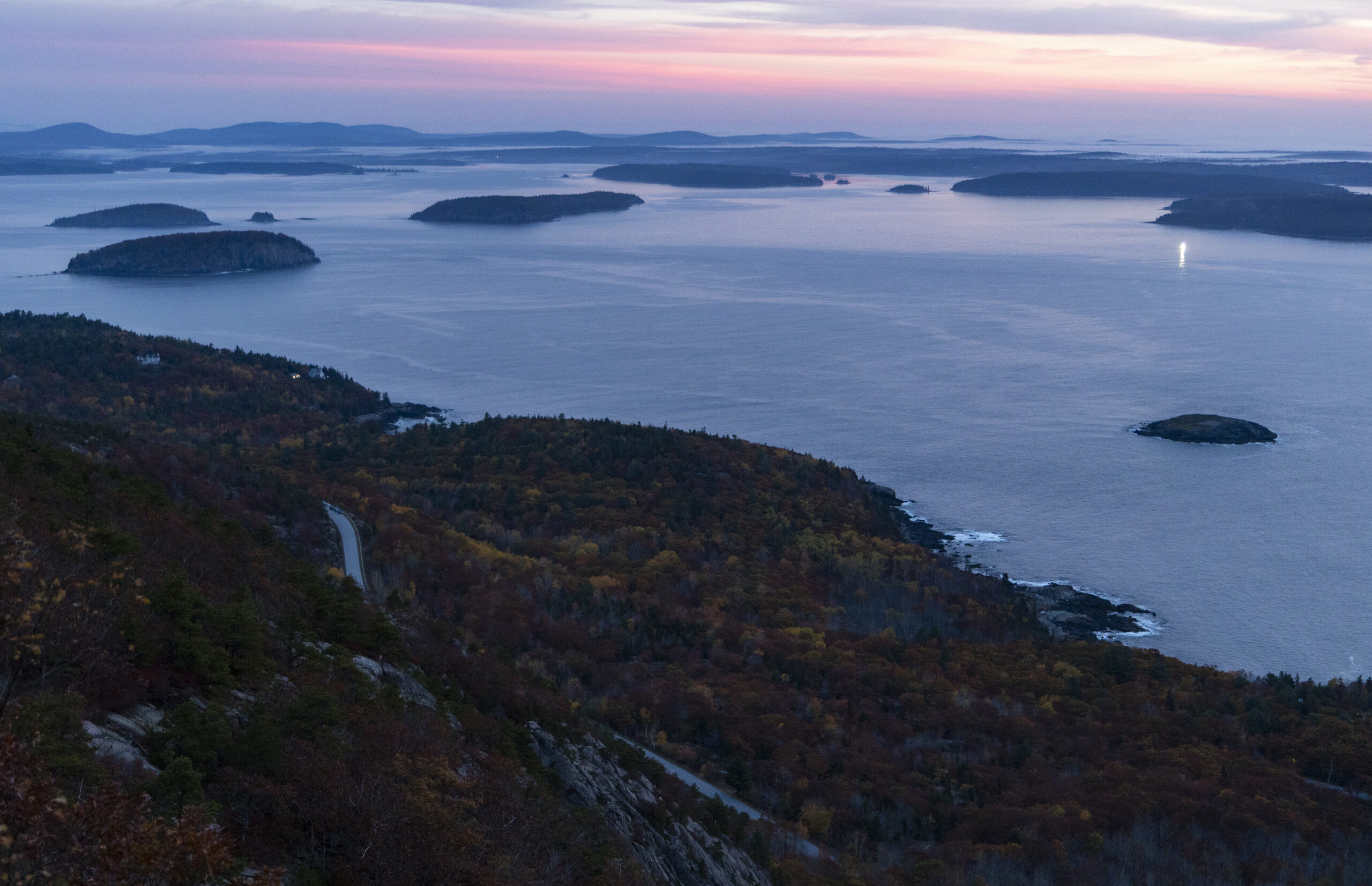The Fight to Prevent Industrial-Scale Aquaculture in Frenchman Bay is Not Over
October 3rd, 2022
October 3rd, 2022
BY STEPHANIE CLEMENT
Friends of Acadia and allies have engaged in a multi-year effort to prevent American Aquafarms from securing two 60-acre leases in Frenchman Bay— near Bald Rock and Long Porcupine Island—where they intend to raise up to 66 million pounds of salmon annually.
At approximately the size of sixteen football fields, the farms would be a massive new industrial use at the center of the Acadian archipelago, degrading the water quality of Frenchman Bay and impairing the scenic vistas, clean air, and natural soundscapes that are vital to the visitor experience in Acadia.
In April 2022, the Maine Department of Marine Resources decided to terminate consideration of American Aquafarms’ lease applications based on the company’s failure to identify an acceptable source of salmon eggs. Soon thereafter, American Aquafarms filed a lawsuit in Cumberland County Superior Court calling the agency’s decision “arbitrary and capricious.” After further consideration, however, the company decided to drop its lawsuit “with prejudice.” This means that, if the company decides to pursue its project, it must now submit entirely new lease applications.
The fight to prevent industrial-scale aquaculture in Frenchman Bay is not over, though. Tom Brennan, Director of Development for American Aquafarms, was quoted in the July 26 edition of the Portland Press Herald, stating that American Aquafarms wanted to come back. Additionally, the company completed its purchase of the former Maine Fair Trade Lobster facility in Prospect Harbor, which is intended to function as the company’s hatchery and processing plant.

The sunrise over Frenchman Bay is viewed from the Precipice Trail in Acadia National Park. (Photo by Lily LaRegina/Friends of Acadia)
Friends of Acadia and partners remain vigilant and continue to discuss options for changing Maine’s aquaculture regulations to prohibit such large-scale finfish operations. The 131st Maine Legislature will convene in December 2022, presenting new opportunities for legislators to sponsor bills to create change.
Friends of Acadia Programs Intern Jake Haertel researched related bills from the past six legislatures to understand why they passed or failed. Friends of Acadia’s Advocacy Committee and staff will use this research in working with conservation partners and legislators to determine the best path forward for ensuring that finfish aquaculture is sited smartly, appropriately scaled, and not harmful to Maine’s outstanding natural resources, especially Acadia National Park.
We’ll continue to keep your posted on our efforts in Friends of Acadia’s E-News and Acadia magazine.
STEPHANIE CLEMENT is Friends of Acadia’s Conservation Director.